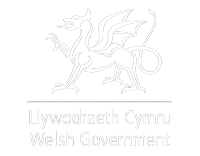- Andersons’ consultants are continuing to support their clients during the pandemic. If you require any advice, please contact your usual consultant, or the office on 01664 503200 or email [email protected].
- UK farm profits fell by 20% in real terms between 2019 and 2020 based on latest Defra Total Income from Farming (TIFF) data. TIFF measures aggregate profitability of all UK farming businesses for the calendar year. The main reason for this decline was a 15% fall in the value of crop output. Income from diversification declined by almost 25%. Livestock sector output was broadly flat whilst costs declined in real terms. Looking to 2021, there are good prospects for a recovery with crops looking in good condition and prices, for crops and livestock, looking generally good (with 1-2 exceptions).
- The Queen’s Speech which sets out the Government’s legislative agenda for the forthcoming Parliamentary session included a number of bills of relevance to the farming and rural sector. The most notable is the Environment Bill which is planned to be passed before the end of the year. Three Animal Welfare Bills are also planned which will include provisions to ban live animal exports for slaughter or fattening. A Planning Bill is set to include provisions for the ‘zoning’ of sites for development and plans to increase the numbers of homes built.
- The farming industry has come together to call on the Government to protect the agricultural sector under any Free-Trade Agreement (FTA) with Australia. The farming sector is asking that some tariff and tariff rate quota restrictions remain whilst UK standards (environment, labour, food safety and animal welfare) are maintained. Some within Government are pushing for tariff-free and quota-free trade. Whilst imports from Australia are currently small in many cases, the deal sets an important precedent for future trade deals with the likes of the US and Brazil.
- Plans for nature restoration and woodland creation have been unveiled as part of the Government’s plans to tackle climate change, address biodiversity challenges and help to deliver its net-zero commitment. The England Wood Creation Offer (EWCO) is due to open for applications shortly and replaces the Woodland Carbon Fund. It will be administered by the Forestry Commission and support will be available for diverse woodland types, from a minimum of 1 Ha per application. Payment rates are not yet published. From 2024, EWCO will transition into ELM and EWCO agreement holders will be able to transfer across to ELM at agreed points without penalty.
- The UK organic farming land area grew marginally in 2020. Latest Defra estimates put the organic land area at 489,000 Ha, up 0.8% on 2019. This accounts for 2.8% of the UK farmed area on agricultural holdings. It is mostly permanent pasture (62%) and temporary grassland (20%) with cereals accounting for 9% of area. Grazing livestock numbers on organic farms are down with sheep 13% lower and cattle numbers down by 9%. Pig numbers were down marginally (-0.6%) whilst poultry numbers rose by 2%.
- AHDB restructuring, due to the votes by the horticultural and potato sectors to end their levies, means that it is seeking to make around 140 staff redundant (30% of workforce). The majority will be in the two sectors concerned but it is also looking to make wider efficiency savings.
- Wheat prices have fallen by £20/t since their highs of early May and currently stand at around £172/t. This is driven by improved weather conditions globally and projected records for cereals yields in the US. Feed barley has also slipped in line with the wheat price. Malting barley premiums are mixed. Growing and ripening conditions are ideal for barley across Europe.
- Chinese imports of maize look set to continue at high levels for 2021/22 marketing year. Historically, it has imported 5-6 million tonnes annually. In 2020-21, it imported 25 million tonnes. Some analysts believe it has already booked a similar amount for the year ahead. This could tighten global supply in 2021/22 and push the whole grain price matrix higher.
- UK farmgate milk prices remain good with further rises reported in May. Arla has announced a further 0.44ppl rise for member suppliers from 1st June. Several other suppliers have also increased their prices including: Muller (+1ppl for non-aligned suppliers); First Milk (+0.5ppl); Meadow Foods (+1.25ppl); Yew Tree Dairy (+2ppl); Freshways (+2.5ppl from July) and; Medina Dairy (+2.7ppl from 1st July).
- Finished beef and lamb prices have cooled somewhat in recent weeks. In early May, the deadweight beef price passed the 400 p/kg price for the first time. For week ending 29th May, the GB all prime average price stood at 394 p/kg, returning to early April levels. These prices are still strong however. Whilst the orders from the catering sector have risen there is some evidence that retail orders have dropped slightly. Deadweight pig prices have continued to increase, with EU-spec SPP currently at nearly 152.8 p/kg.
This month’s Spotlight looks at Defra’s consultation on Lump Sum and Delinking of BPS in England. Click Here for further information.
If you would like more detail on the topics covered above as well as additional articles on UK farm business matters, why not subscribe to Andersons’ AgriBrief Bulletin? Over the course of each month, we give a concise and unbiased commentary on the key issues affecting business performance in the UK agri-food industry, and its implications for farming and food businesses. Please click on the link below for a 90-day free trial:



